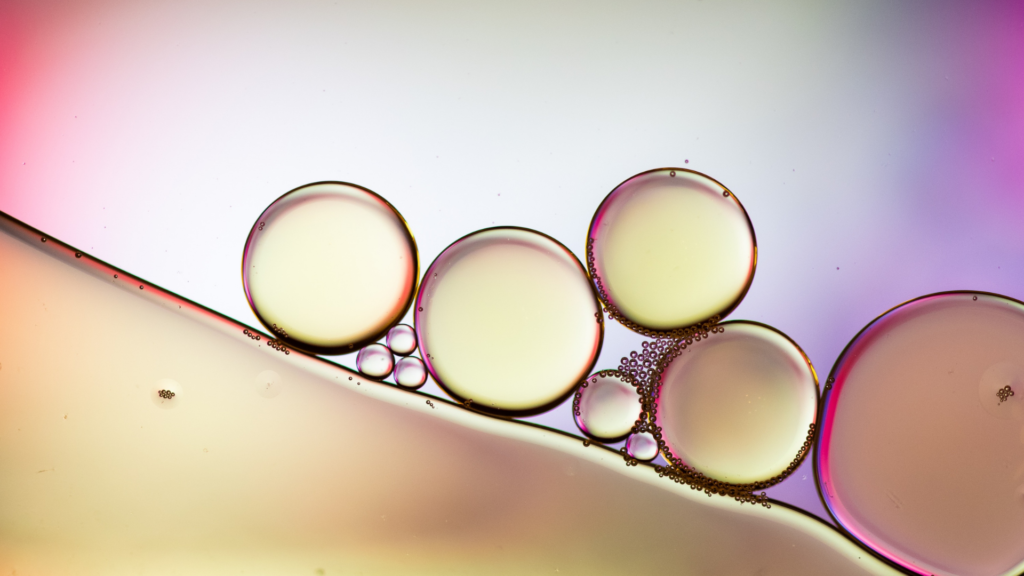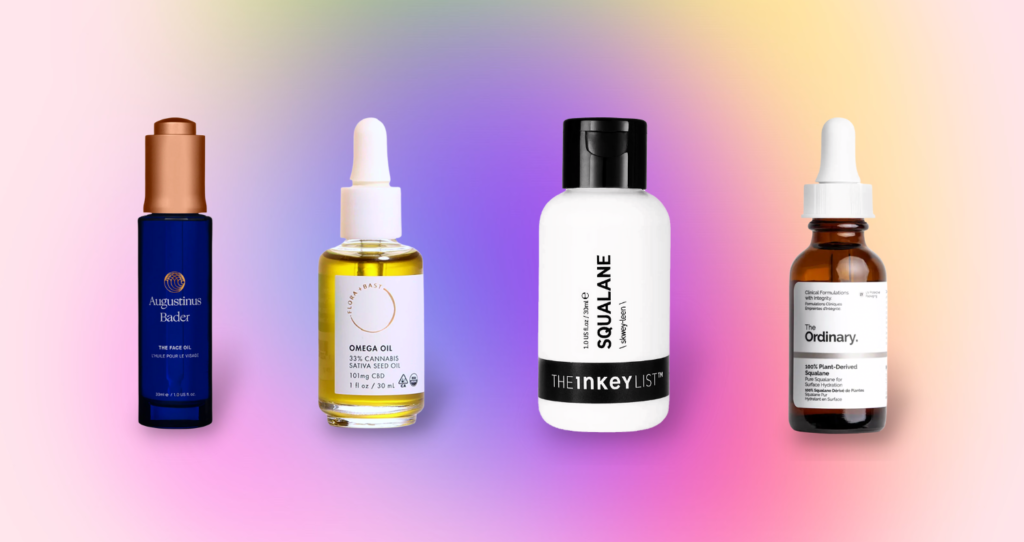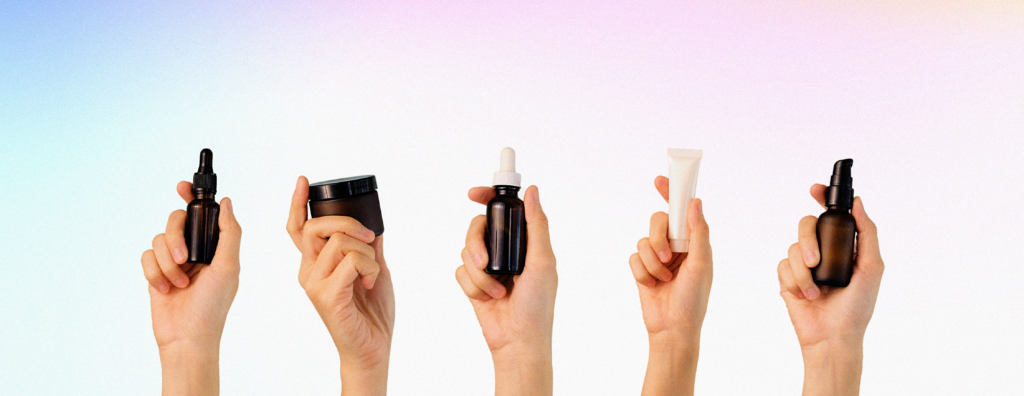Facial oils are for Everyone

The most common myth is that facial oils will make your face greasy, clog pores, cause pimples and so much more.
While for some oils this is true, there are others that are incredible and this is why it is important to understand which oil is best for your needs and how to use them properly because face oils can actually treat some of your skin concerns and can give you the bright, glowy, clear skin you are dreaming of.
It sounds counterintuitive, but the right oil can not only act as an astringent to rid your face of excess grease but will also help stabilize and regulate your skin’s sebum production (i.e. the oily film that your skin naturally produces) making you less oily overall.
Because of their different molecular weights, many oils feel more like a serum or essence so you’re not stuck feeling greasy or sticky.
Some recommendations depending on your skin type
⭐️Jojoba Oil
Not only is jojoba an incredibly lightweight and breathable oil (making it great for combination skin that still needs some moisture), it actually breaks down and dissolves excess sebum that can in fact help your skin appear less shiny.
⭐️Grape Seed Oil
If your skin is incredibly oily – as in, you’ve never once felt a dry patch on your face – opt for grape seed oil. It’s a natural astringent (and a bit more drying than jojoba oil), so it’ll help further mattify your skin, keep your sebum production at bay while still locking in all the juicy skincare you have previously applied.
What if I told you the key to reducing your breakouts is to slather oil on your face?
Most acne treatments on the market are filled with irritating ingredients that strip your skin of its natural and important oils. They basically act as a second skin barrier to protect your cells from pollution and dirt. When your skin is dry and inflamed, it overproduces sebum which is leading to breakouts and blackheads.
Acne-safe facial oils, however, work to nourish your skin, so your body can heal the zits you have without causing more inflammation.
Kill ‘em with kindness, right?
⭐️Pomegranate Oil
Not only is it naturally antibacterial and anti-inflammatory (so it’ll help fight zit-causing bacteria in your pores while also calming the rest of your inflamed broken-out skin) but it’s also incredibly lightweight, so it won’t feel like a greasy mask.
⭐️Rosehip Oil
When you want to treat irritated, angry, red, zit-riddled skin, you bring in the big guns – i.e. rosehip oil. The innocuous oil deeply hydrates skin without suffocating your pores with fatty acids that also fade acne scars and reduce redness over time.
You’d think that any face oil would automatically be a Cupid-level match for dry skin but like all things in beauty, it’s not that simple.
Some oils are naturally more astringent and lightweight than others (like the previously mentioned jojoba, grape seed, and pomegranate oil).
This means that skin that tends to be on the dryer spectrum can love a richer oil that’s high in oleic acid – a fatty acid that helps condition your skin, lock in moisture and reduce irritation from dryness.
⭐️Almond Oil
It’s intensely hydrating and simple and gentle enough for anyone with eczema, dermatitis, or just really, really dry skin. It’s also incredibly high in vitamin A (i.e. retinol is a derivative), giving it some line-smoothing and zit-fighting power when used topically over time.
⭐️Marula Oil
This oil manages to absorb into the skin within a few minutes of massaging it on, yet it’s still rich enough to moisturize and calm your dry skin all day/night long. This is also based on the support of the fatty acids in this particular facial oil.
If you have sensitive skin, you need a face oil specifically designed to wrap your skin barrier in a soothing, nourishing, cuddling hug.
This means finding a formula that’s bland, bland, bland.
Absolutely zero essential oils such as lavender, peppermint, rose and any other ones which tend to only irritate sensitive skin.
Furthermore, you want to look at skincare products that are completely fragrance-free altogether to avoid irritating your already fragile skin barrier.
⭐️Moringa Oil
This overachieving oil is packed with antioxidants to protect your skin from irritating free radicals, fatty acids to help repair a dry, damaged skin barrier and anti-inflammatories to calm irritated skin. It’s also lightweight, yet still moisturizing enough for dry skin, so you can easily layer it under makeup without creating a gunky mess.
⭐️Aloe Vera Oil
Just like moringa oil, aloe oil is filled with anti-inflammatories and antioxidants, but it also has the added bonus of being a natural antibacterial and astringent, making it a powerhouse for sensitive skin that’s also oily or acne-prone.
If you don’t really break out, you’re not super dry, definitely not too oily, probably not sensitive, and your answer to every skincare question is, “Uhh, maybe? I don’t think so…” Then congrats! You have perfectly average, “normal” skin.
This means you can use a basic, OG face oil without having to worry about clogged pores, irritation, or dryness.
⭐️Argan Oil
Meet the only face oil you’ll ever need for your perfectly chill face. It’s rich and soothing, it sinks in quickly, and it’s incredibly high in vitamin E – an antioxidant that helps prevent skin damage, dark spots, and fine lines by blocking environmental damage. Massage it on in the morning or night (or both!) as the final step of your skincare routine.
The ultimate weapon
⭐️Squalane
Squalane is an allrounder that works for so many skin types since it is very similar to our natural sebum. Frome acne-prone, to sensitive, to dry skin. If you try to get into facial oils, this one is worth beginning with as you might expect the least amount of skin reactions when it comes down to face oils.
Incorporate facial oils into your daily skincare routine
If you’re still terrified that oil will worsen your skin, try patch-testing one on the most acne-prone areas of your face (it’ll be the most reactive spot, and therefore the most accurate) for a week to see what happens. If your skin doesn’t break out, massage a few drops of oil over your skin at the end of your skincare routine at night.
• Double cleanse in the morning if you used a facial oil overnight but especially double cleanse at night to
properly clean out your pores
• Use Hyaluronic acid for hydration if not continue with your serums/active ingredients
• Apply your moisturiser
• Lock everything in with your facial oil
• Apply SPF if this is part of your morning routine, skip it if it’s your night routine
You can apply 2-3 drops of the facial oil and warm it up in your hands before you pad it into your skin or do your facial massage.

Oils to not put on your face
Mineral oil is a big no-no and olive and coconut oil should remain
in the kitchen but not be applied to your face






thanks a lot i’m thanks I’ll try The Ordinary
100% Plant-Derived Squalane as I just saw that this product contains only plants , and i’m going to use again aloe vera oil + Pomegranate Oil among other , the Jojoba oil is my favorite –